The opening ceremony of the TURNS research platform brought together researchers and actors from different fields to hear and discuss the sustainable future of cities. The programme of the kick-off included researcher speeches, networking, music, and a toast to a new research platform. The public had the opportunity to participate and give feedback regarding TURNS with a mobile application.
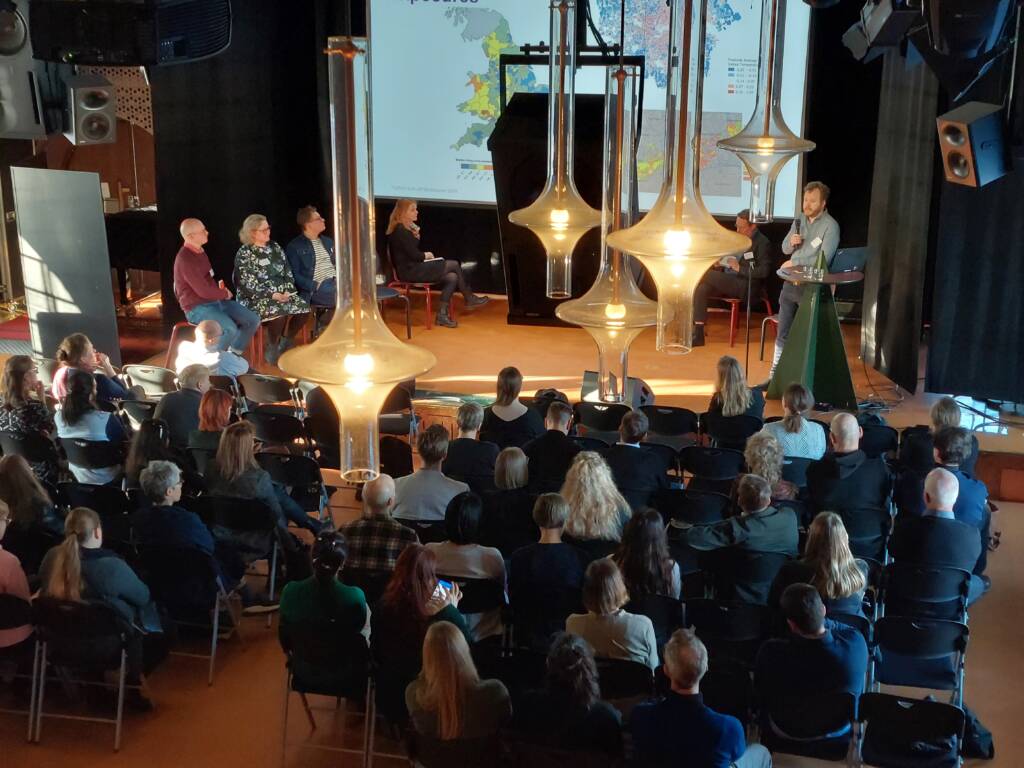
At the beginning of the event, Panu Lehtovuori, Head of TURNS, presented the ambitious goals of the new platform. TURNS creates opportunities for multidisciplinary and innovative research, thereby promoting and reflecting on the position of cities as part of the sustainability transition now and in the future. The scientific quality and impact of research are at the core of TURNS’s activities. A long-term approach enables better results both locally and globally, and the goal of TURNS is to become a significant hub for urban and sustainability research internationally.
Riina Lundman, Project Manager of TURNS, presented the activities of the research platform in more detail. TURNS supports the networking and mobility of researchers through seed funding and researcher visits, for example. A central and visible form of activity will be the so-called TURNS Thursdays, when TURNS organizes local activities ranging from research meetings to city walks together with the research community and stakeholders.
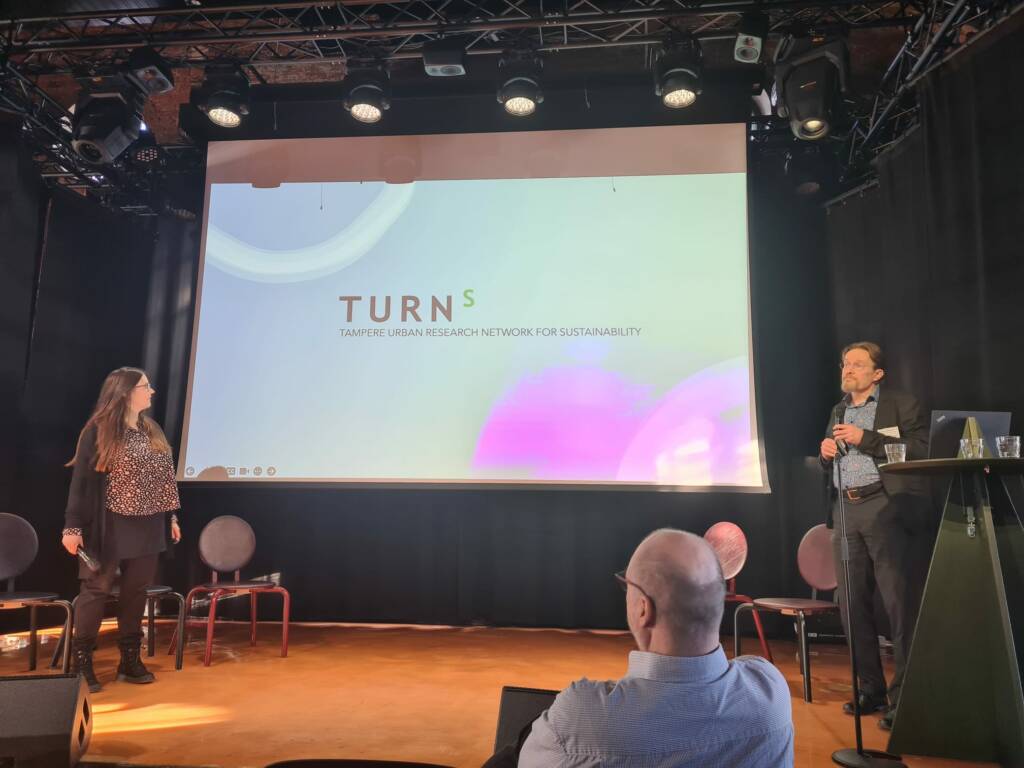
Diversity of urban research at TAU
As an indication of the diversity of urban and sustainability research at Tampere University (TAU) and TURNS, representatives from each faculty involved in the research platform were invited to give short mini-lectures on their research topics.
The first speaker, Professor Päivi Kymäläinen (SOC), talked about social sustainability and justice in cities. Sustainability and inclusion policies do not necessarily reach the most marginalized city dwellers, who are easily excluded from participation. Kymäläinen also presented the JUSTSPACES research network, which delves into questions between justice, society, and urban space.
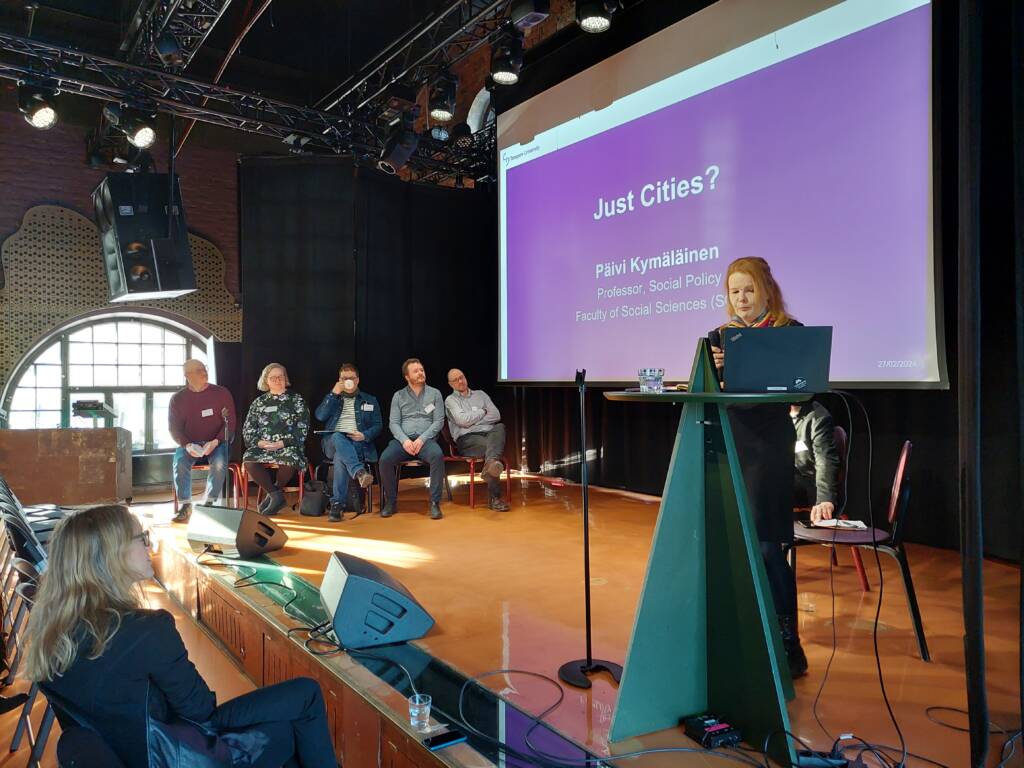
A concrete example of an activity aiming at a more sustainable city was given by University Lecturer Markus Laine (MAB), who presented the Nordic Superblock concept and its possible application in the Hiedanranta area of Tampere. A Finnish speciality was the abundant supply of communal saunas included in the concept, which also represents sustainable thinking: residents share common spaces, and not every apartment needs its own sauna.
University Lecturer Essi Aarnio-Linnanvuori (EDU) talked about a research project related to climate education and views on environment among young people in Europe. The young people’s responses highlighted their concern for the future, although a more indifferent attitude could also be observed in Finland. This does not mean that the climate change would not affect Finnish youth.
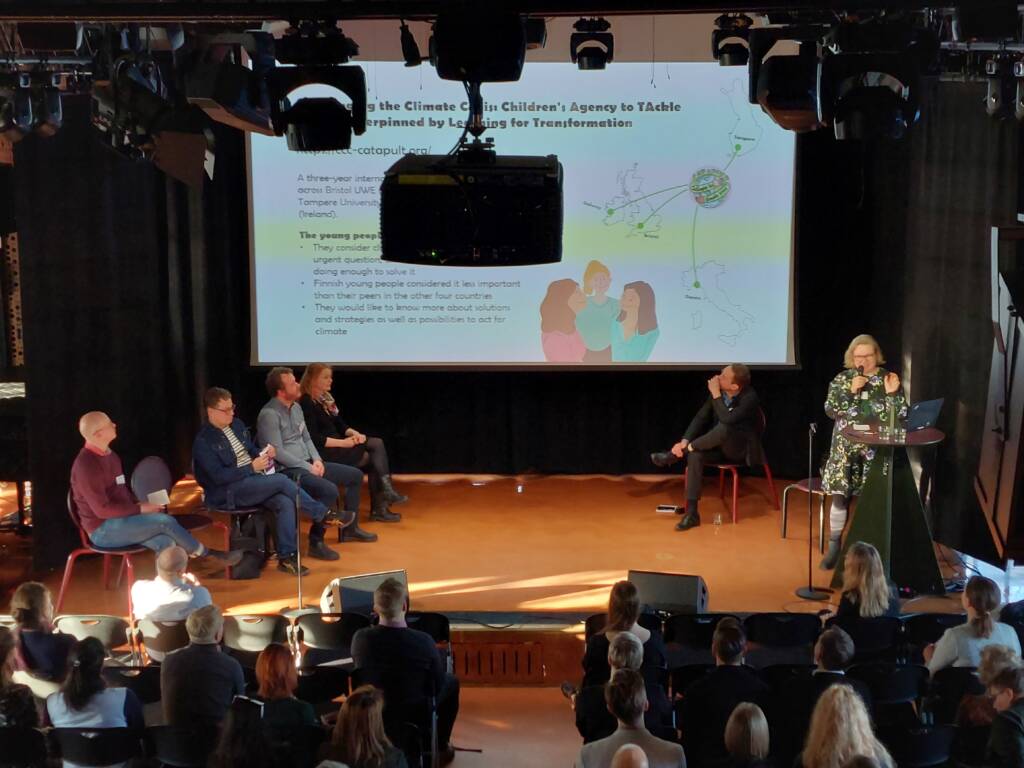
Tenure-track Professor Jonathon Taylor (BEN) went even deeper into the topic of climate change, and how it can be examined through data and modelling. Climate, air pollution, and health are all real phenomena in real cities, which can be studied with the help of urban physics.
University researcher Olli Laitinen (MET) told more about urban health, biodiversity exposure, and immunology, and introduced a ‘Sand Play’ study, where children’s immune response was studied using indoor rewilding intervention methods. Health issues are and will continue to be an important part of urban societies, with COVID-19 as a fresh reminder for all of us.
The series of mini-lectures ended topically with artificial intelligence and cities. Doctoral researcher Jouko Makkonen (ITC) presented human-centered intelligent technologies and how they can be utilized in promoting communality and sustainability in residential areas. An example of such use was again a study on Nordic superblocks. Of course, the AI had to be asked what a Nordic superblock would look like (see visualization below).
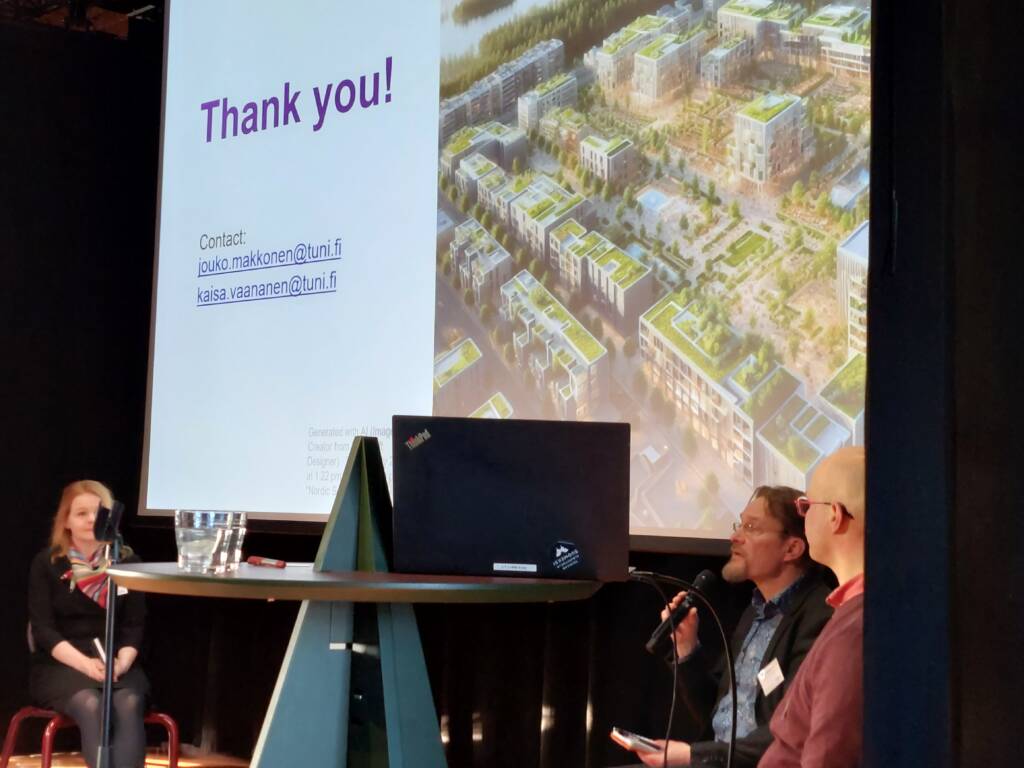
Although the mini-lectures were compiled from different faculties, they showed a common goal and narrative of how urban sustainability is a multidisciplinary phenomenon that must be tackled together across disciplines and sectors. The mission of TURNS is to bring different fields and researchers together and thus collide people and ideas, leading to new research ideas and innovations.
A sustainable city is made together
Where to from here? Professor Sofie Pelsmakers (BEN) gave the keynote speech titled with this important question. The sustainability problems of cities have been identified, but what solutions have been developed and what needs to be done to achieve a more sustainable urban future? And what will be the role of TURNS in shaping more sustainable cities?
Pelsmakers approached these questions through the concepts of various infrastructures. Cities need to be diverse and adaptable both with respect to the built environment and society as a whole; cities must have enough green but also social infrastructure; and the sustainability transformation must be co-produced equally and in an inclusive manner.
Thus, also Pelsmakers’ speech demonstrated how cities and sustainability are intertwined in many ways, and how the different elements of the urban environment are not separate from each other. Pelsmakers set strong goals for multidisciplinary platforms like TURNS, but at the same time she reminded that change must be made together. TURNS takes up the challenge!
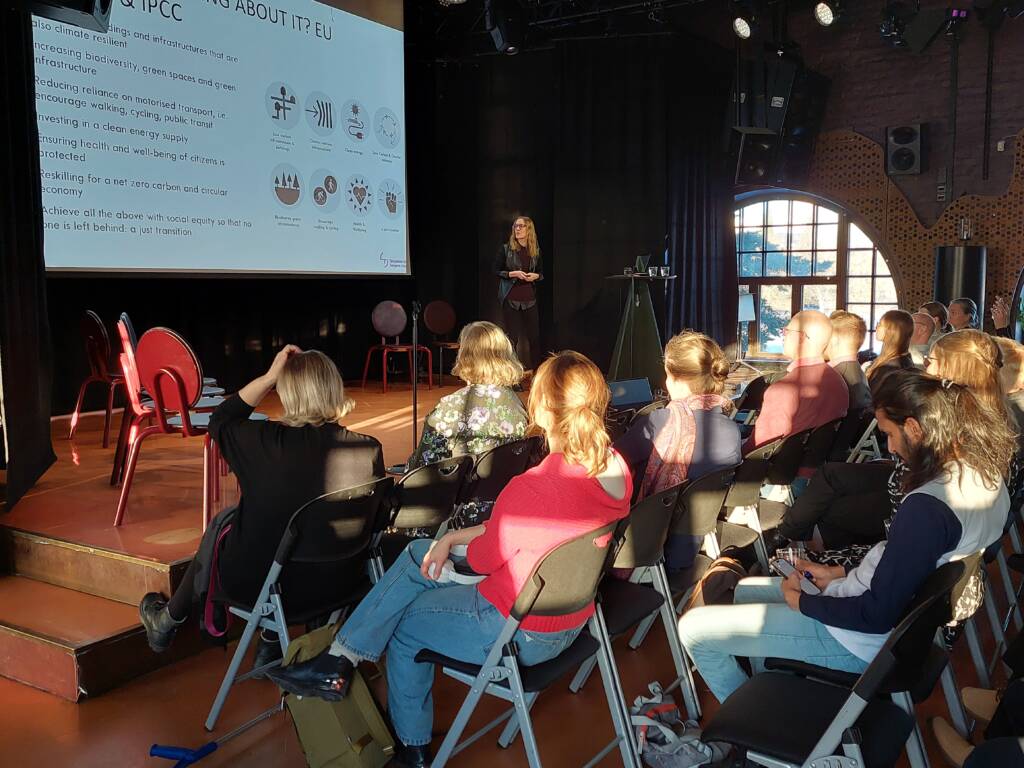
In that sense, the rest of the opening ceremony was spent on the most important things: encounters and networking, which will serve as starting points for later cooperations and ideas around urban sustainability. DJ Jon Thureson played city-themed music, and people were free to mingle and chat with each other. Although high-quality research and impact require hard work and resources, TURNS also wants to serve as a refreshing and inspiring platform for creative thinking and collaboration.
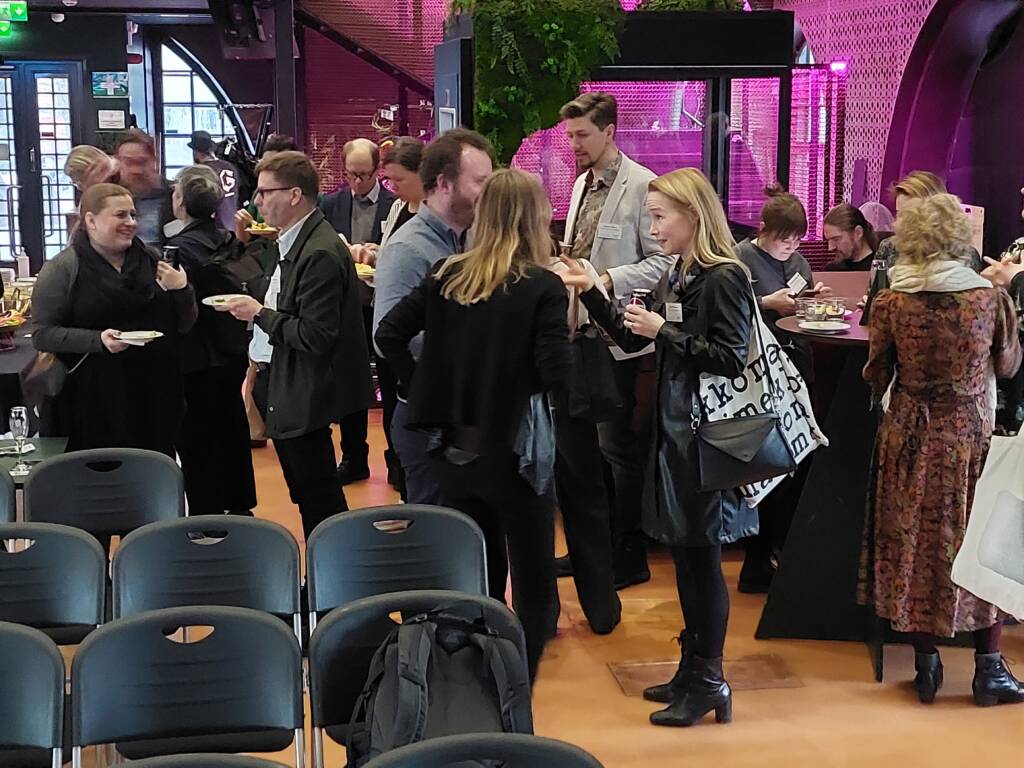
You can have a look on the atmosphere of TURNS kick-off on the video below:
(If you are watching the video on your phone, rotate the phone horizontally)
Text: Riina Lundman / Photos: Riina Lundman and Kasmir Jolma
